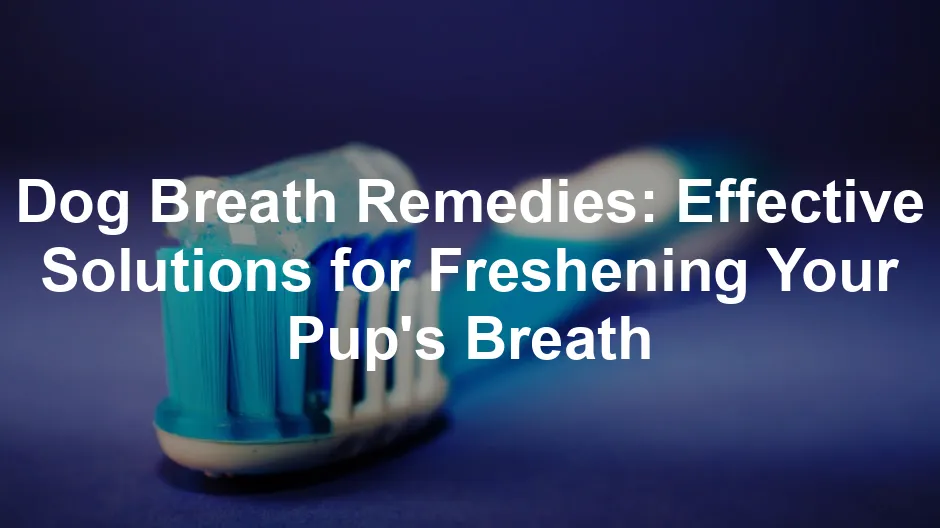Introduction
Bad breath in dogs is a common issue. This problem can make cuddling less enjoyable. It’s essential to address bad breath for your dog’s health. Fresh breath also enhances your comfort as a pet owner. In this article, we’ll discuss effective remedies and tips to keep your dog’s breath fresh.
Summary and Overview
Halitosis, or bad breath, is prevalent among dogs. Many pet owners notice this issue at some point. Bad breath can arise from various causes, some of which might indicate serious health concerns. Common culprits include dental disease, oral hygiene neglect, and certain diets. Other factors may also play a role, such as kidney or liver conditions. This article will cover remedies and preventative measures to combat bad breath. Regular veterinary check-ups are crucial to identify underlying problems and support your home care efforts.
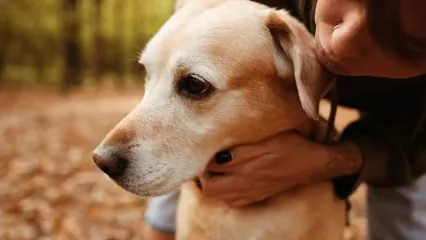
Speaking of dental disease, did you know that regular tooth brushing can be a game changer? Don’t worry; you don’t have to brush your dog’s teeth with your own toothpaste! Check out this Pet Toothpaste for Dogs that’s safe and effective!
Understanding the Causes of Bad Dog Breath
Common Causes of Bad Breath
Bad breath often stems from oral health issues. Periodontal disease is a leading cause. This condition develops when plaque and tartar build up on teeth. Poor oral hygiene can exacerbate this problem. Dietary habits can also contribute. Dogs that eat garbage or engage in coprophagia may develop foul breath. Additionally, underlying health issues like kidney disease or diabetes can cause bad breath as well.
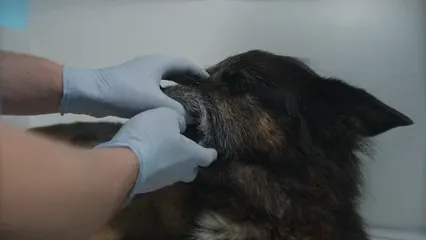
Key Points to Address
Poor oral hygiene results in bacteria accumulation. This leads to plaque and tartar, which produce unpleasant odors. Certain diets, especially those high in sugars or fats, can worsen the issue. Signs of a more serious health concern may include persistent bad breath, vomiting, or changes in appetite.
Statistics/Data
Research indicates that up to 80% of dogs show signs of dental disease by age three. This statistic underscores the importance of dental care for your furry friend.
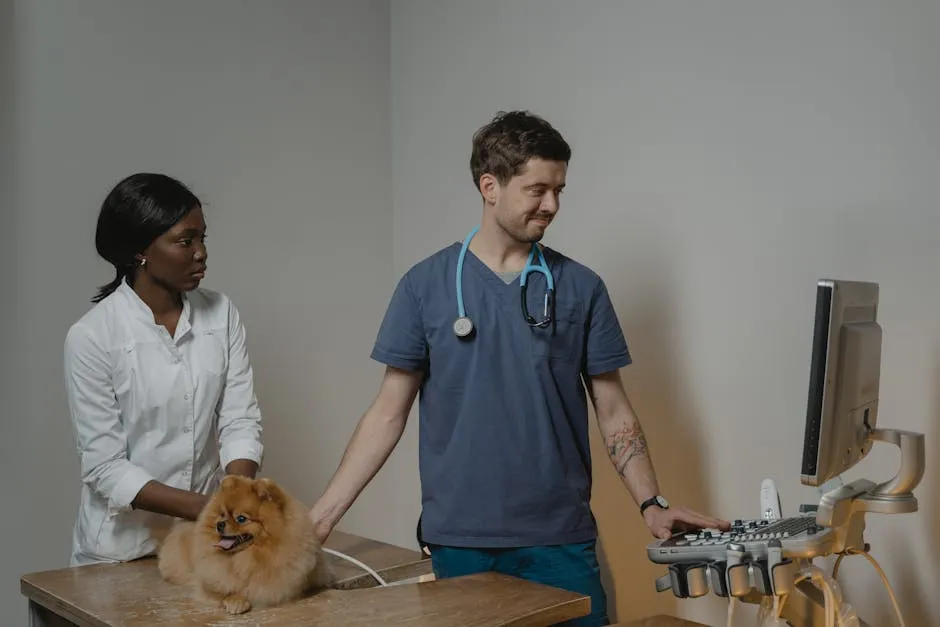
Call to Action
If you notice persistent bad breath in your dog, it’s time to schedule a visit with your veterinarian. A professional examination can rule out serious health issues and guide you to the best treatment options.
10 Effective Home Remedies for Dog Breath
1. Regular Teeth Brushing
Brushing your dog’s teeth is a must. Use toothpaste made specifically for dogs. Human toothpaste can be harmful. Aim to brush your dog’s teeth 2-3 times a week. If daily brushing is possible, that’s even better! Use a soft-bristled toothbrush designed for dogs. Focus on the back teeth, where plaque tends to build up more. Make it a fun routine, and your dog will start to enjoy it!
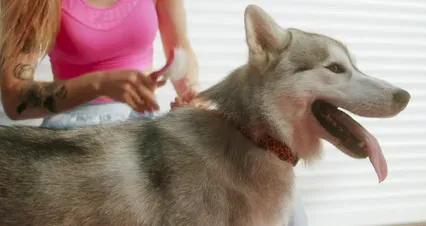
2. Dental Chews and Treats
Dental chews are a delicious way to tackle bad breath. They help reduce plaque and freshen breath as your dog chews. Look for products approved by the Veterinary Oral Health Council (VOHC). Brands like Greenies Dental Treats or Whimzees Dog Chews are popular choices. Just like brushing, these treats can make a significant difference in your dog’s oral health. They’ll love the taste while you enjoy their fresher breath!

3. Natural Foods
Incorporating crunchy fruits and veggies into your dog’s diet can do wonders. Carrots, apples, and celery are great choices. Their crunchy texture helps scrub your dog’s teeth naturally. Plus, they are full of vitamins and nutrients. Make sure to cut them into safe, bite-sized pieces. Just remember to remove apple cores and seeds! Not only do they help with bad breath, but they also provide a nutritious snack.
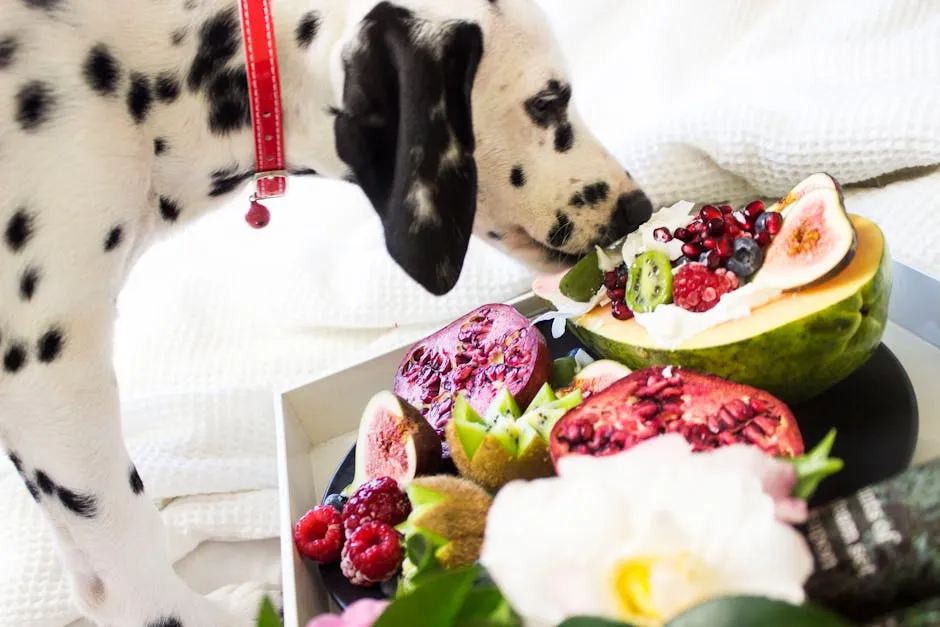
4. Coconut Oil
Coconut oil isn’t just for cooking; it can also help with dog breath. This oil has antimicrobial properties that fight bad breath-causing bacteria. Start with a small amount, about half a teaspoon, mixed into their food. Monitor your dog for any stomach upset. Many dogs enjoy the taste, so it can be a nice addition. Over time, it can contribute to better oral health and fresher breath. Plus, you can get some quality Coconut Oil for your pup right here!

5. Raw Bones
Raw bones are an excellent natural remedy for dog breath. Chewing on raw bones helps reduce plaque and strengthens teeth. Choose meaty bones like beef or lamb. Avoid cooked bones, as they can splinter and pose a risk. Always supervise your dog while they chew. This will keep them safe and ensure they enjoy the benefits of this dental treat. You can find great options for Raw Meaty Bones online!
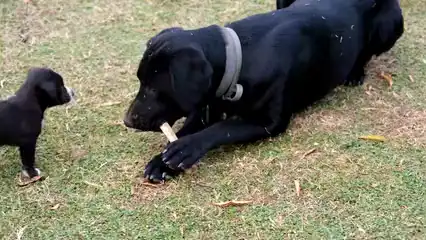
6. Probiotics
Probiotics can improve your dog’s gut health and reduce bad breath. They help balance the bacteria in your dog’s digestive system. You can find Probiotic Supplements for Dogs designed for their unique needs. Plain yogurt can also be a great source. Just make sure it doesn’t contain any added sugars or flavorings. Introduce probiotics gradually into your dog’s diet for the best results.
7. Parsley and Mint
Fresh herbs like parsley and mint can freshen your dog’s breath naturally. Parsley contains chlorophyll, which helps neutralize odors. You can sprinkle chopped parsley on their food or offer mint leaves as treats. Alternatively, you can boil these herbs in water and use the cooled liquid as a mouth rinse. Your dog will enjoy the fresh taste while benefiting from cleaner breath. If you want to mix it up, consider adding some Fresh Parsley to their meals!
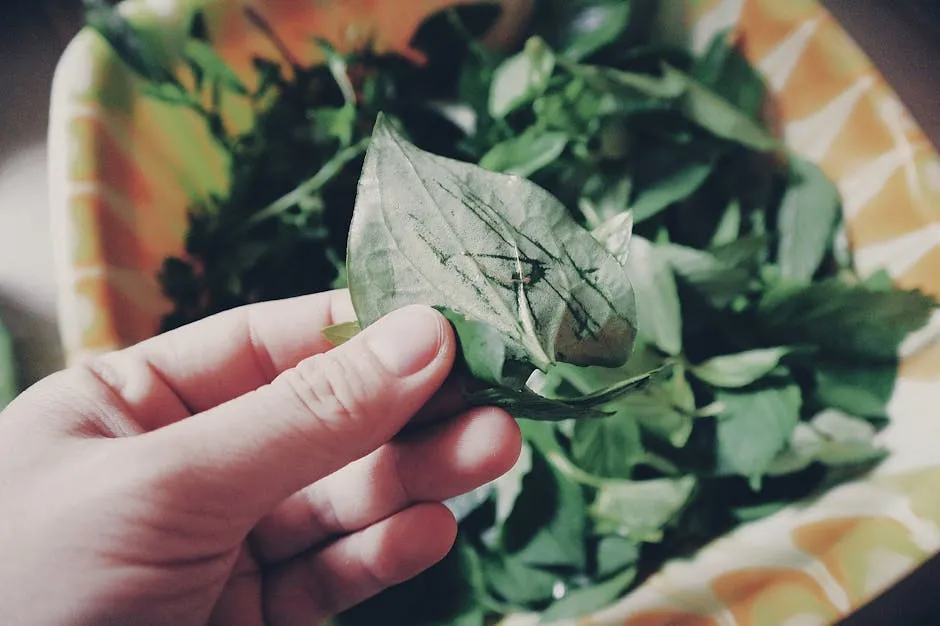
8. Apple Cider Vinegar
Apple cider vinegar is another fantastic remedy for bad breath. It helps neutralize odors and can improve overall oral health. Mix half a teaspoon into your dog’s water or food. Start with a small amount to ensure your dog tolerates it well. If they dislike the taste, try gradually increasing the amount. This simple addition can make a big difference in their breath. Check out this quality Apple Cider Vinegar available on Amazon!
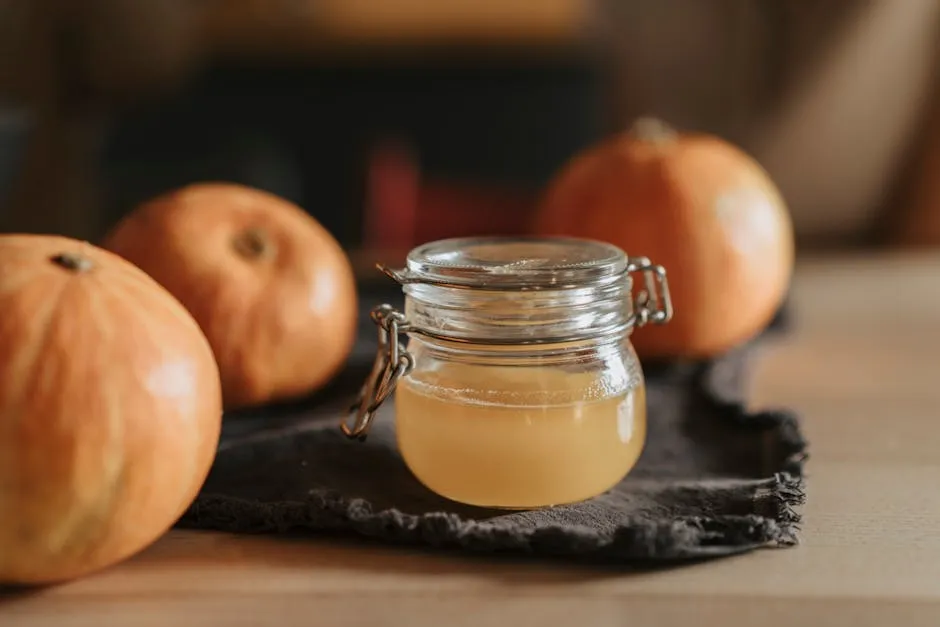
9. Regular Hydration
Hydration plays a vital role in maintaining your dog’s oral health. Make sure your dog always has access to fresh, clean water. Proper hydration helps wash away food particles and bacteria. Dehydration can lead to dry mouth, which can worsen bad breath. Encourage your dog to drink water regularly, especially after meals, to promote better breath. Consider getting a Dog Water Bottle for outings!
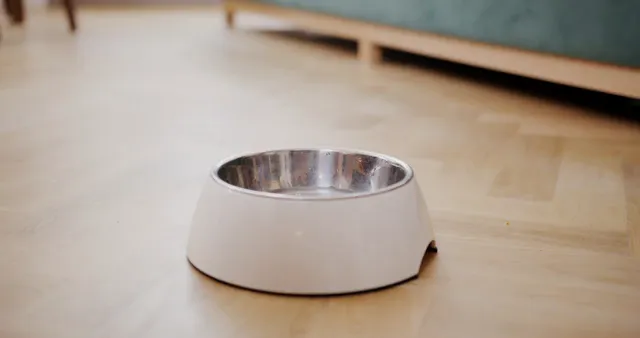
10. Avoiding Bad Habits
It’s crucial to monitor your dog’s eating habits. Dogs can sometimes indulge in undesirable items, like trash or feces. This behavior can lead to foul-smelling breath. Keep trash cans secure and supervise your dog during outdoor play. Training your dog to avoid these habits can significantly improve their breath and overall health. You might also want to consider training treats that promote good behavior. Look for Dog Training Treats to help with that!

By implementing these remedies, you can help keep your dog’s breath fresh and pleasant. Regular dental care and attention to their diet are key to preventing bad breath and promoting good oral health. Plus, your pup will appreciate the tasty treats along the way!
When to Consult a Veterinarian
Recognizing Serious Issues
Not all bad breath is the same. Some odors might signal a serious issue. If your dog has persistent bad breath, pay attention to their overall health. Look for symptoms like bleeding gums or difficulty eating. If your dog seems to be in pain while chewing, this could indicate dental problems. Additionally, if their breath smells like feces or urine, it might be time for a vet visit.
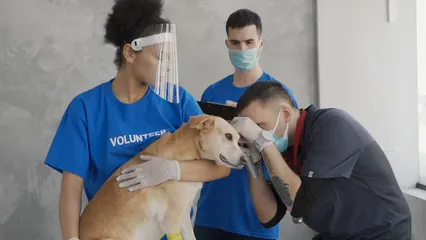
Key Points to Address
Regular professional dental cleanings are essential for your dog’s health. Many owners underestimate the importance of these cleanings. Bacteria can build up quickly, leading to dental disease. This disease can cause not only bad breath but also pain and tooth loss. Consider investing in a Dog Dental Chews for additional support!

Call to Action
If home remedies do not improve your dog’s breath, seek veterinary advice. Early intervention can prevent more serious health problems. Your dog’s health is worth it!
FAQs
What is the most common cause of bad breath in dogs?
Bad breath, or halitosis, often stems from periodontal disease. This condition occurs when plaque builds up on teeth, leading to bacteria growth. Poor oral hygiene can worsen the problem. When not addressed, it can cause inflammation and infections in the gums. Regular dental care is essential to prevent these issues.
How often should I brush my dog’s teeth?
Brushing your dog’s teeth should be part of their routine. Aim to brush at least 2-3 times a week. Daily brushing is even better for optimal oral health. Use a soft-bristled toothbrush and toothpaste specifically made for dogs. Focus on the back teeth, where plaque tends to accumulate. Make it a fun experience to help your dog get used to it.
Can bad breath in dogs indicate a serious health issue?
Yes, bad breath can be a sign of serious health problems. Conditions like kidney disease, liver disease, and diabetes can contribute to halitosis. If your dog’s breath has an unusual smell, it could indicate an underlying issue. Don’t ignore persistent bad breath, as it may require veterinary attention.
Are there any foods I should avoid giving my dog to prevent bad breath?
Certain foods can worsen your dog’s breath. Avoid giving them high-sugar treats, as these can lead to plaque buildup. Foods that are fatty or extremely rich can also contribute to bad breath. Additionally, prevent access to garbage or feces, as eating these can lead to foul odors.
How can I tell if my dog’s bad breath is serious?
Watch for symptoms that may indicate a need for a vet visit. If your dog has persistent bad breath along with swollen gums, bleeding, or difficulty eating, it’s time to consult a veterinarian. Other concerning signs include excessive drooling, weight loss, or vomiting. These symptoms can indicate serious health issues.
Are homemade remedies effective for dog breath?
Homemade remedies can help freshen dog breath but might not be a cure-all. While natural ingredients like coconut oil or parsley may provide temporary relief, they won’t replace professional care. If your dog’s bad breath persists, consult your veterinarian for a comprehensive treatment plan.
What should I do if my dog refuses to let me brush their teeth?
If your dog resists tooth brushing, start slowly. Introduce them to the toothbrush and toothpaste gradually. Use positive reinforcement like treats or praise. You can also try finger brushes or gauze to clean their teeth. If brushing remains a challenge, consider dental chews or professional cleanings to maintain oral health.
LSI Keywords
When tackling your dog’s bad breath, consider these relevant terms: dog breath, halitosis, oral health, home remedies, and veterinary care. These keywords reflect the various aspects of addressing this common canine concern.
Using these keywords throughout your content can help improve search visibility. It allows readers searching for effective solutions to find your article easily. Remember, bad breath can be a sign of more serious health issues. So, understanding these terms will help you better navigate this topic.
Call to Action
Have you tried any remedies for your dog’s bad breath? We’d love to hear about your experiences! Share your tips or ask any questions in the comments below. Engaging with others can provide new insights and support for tackling this issue. Let’s help each other keep our furry friends healthy and happy!
Please let us know what you think about our content by leaving a comment down below!
Thank you for reading till here 🙂
All images from Pexels

